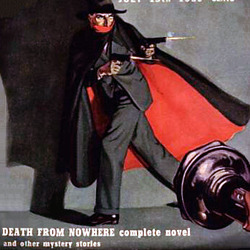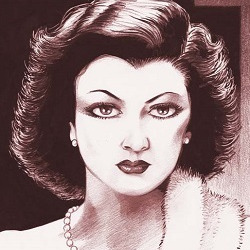#moon knight introject talks about his source
Explore tagged Tumblr posts
Text
Alright, I won’t write a mini-dissertation about this topic, but it’s time to discuss how Steven turning to stone in the Duat represents dormancy.
First, let me explain what dormancy is. Dormancy is the term for when an alter becomes inactive. They don’t front and you can’t find them in IW. It’s kinda like a volcano. A dormant volcano isn’t gone, it’s still a volcano, but it hasn’t woken up. Many systems describe dormancy as an alter sleeping for an indeterminate amount of time. It isn’t death, however.
Now that we know what dormancy is, we can compare this to Steven turning to stone and Marc’s dialog in the Field of Reeds after.
Marc says to Taweret, “We need to go back for him.” This prompts the very correct response of “It doesn’t work like that,” from the Hippo.
Forcing an alter back from dormancy can have a lot of negative effects on the alter and system. It’s something that shouldn’t be done unless absolutely necessary, as dormancy happens for a specific reason. This is a show with a hippo goddess, though.
Taweret says “You don’t need him anymore, Marc.” Alters go dormant because their role has been fulfilled. All alters have a purpose, not determined by if the system chooses to follow those labels that denote the role. When the body died, Steven had no purpose.
-Steven Grant
40 notes
·
View notes
Note
Are you gonna talk about how Marlene is named after Margo Lane and Steven is bascially Lamont Cranstron Margo's boyfriend from the Shadow and Moench said as much
Because the shadow was on when Marc was a kid in volume #1 going by him being in his 30s and Elias leaving Europe in 1939 so like is Steven a Lamont Cranstron introject in the comics?
My friend, you just hit on a long time love of mine.��
Marlene Alraune. I've long had mixed feelings about the original flame of the Moon Knight system.
She's absolutely a badass who could always take care of herself in a time when the women in comics were often just there to be eye-candy and rescued.
Heck, half the time Marlene did the rescuing. The number of times she saved Moon Knight is quite high.
But she also fell in love with an idea of who she wanted 'Marc' to be. When he didn't fit that idea, she could often be quite cruel and abelistic.
Sometimes she was good for them, trying to get them to face their problems and let go of the past.... But usually she was the one pushing them to 'snap out of' their mental health issues and be Steven while forgetting the other two.
Now, I don't know if she's based on Margot Lane. But it is easy to see that she is meant to be Moon Knight's version of Margo Lane.
(I would love to see your source of Moench saying such! I'm always curious to see what the OG has to say about his MK starts).
For those out of the loop:

Margo Lane is from "The Shadow" (one of my favorites!!!). A comic created in 1931 and turned into a very popular radio play in 1937 (officially it was tested in the waters as early as 1930 before he was hashed out into a literary sense in 31 and then revived again in 37 as his own familiar self).
It was later made into least one (Okay) movie with Alec Baldwin in 1994.
Margo was created originally for the radio drama as a companion when they realized they had far too many men in the line up and it would become difficult to distinguish the voices. But MAN was she a heavy hitter!
She was incredibly intelligent, fearless, and didn't put up with his shit.
Orson Welles was the voice of the Shadow and his alter ego Lamont Cranston. Let me tell you... Once you've heard Orson deliver the line: "Who knows what evil lurks in the hearts of men? The Shadow knows!" You ain’t ever going back.
You can still find the radio plays on most podcast services.

Margot Lane fresh out of the 1930s!
Now, I can 100% see the comparison between Marlene and Margot. At the start.
Complicated love interest of a character with alter egos and a complex social standing and questionable mental health at times. (I could go on and on about Lamont but I won't).
Marlene was originally a damsel in distress that evolved into a badass independent woman. Margot was originally a fast talking quick witted woman who on occasion needed rescuing.
As for their personalities? I’d say they are quite different. Perhaps Marlene started out as an idea to give Moon Knight an interesting companion. In fairness, imagining early MK without Marlene is actually a bit dull. You NEED to have that inner circle that knows his past and has an interest in helping him. As for Margot, she isn’t fleshed out well in the early radio show and she wasn’t in the original comic/story until after the radioshow. She was just a voice with witty remarks and smart observation that paired very well with Orson Wells.
Now, you mentioned Steven as basically a fictive of Lamont Cranston.
The timeline can line up for the original run. We already know little Marc liked to play with super hero toys and enjoyed an escape in fictional stories (Mostly from Lemire's run as we never see little Marc in the OG run outside of Zelenetz' 2 part exploration of the past in like, one page). It is possible he listened to The Shadow on the radio.
In the MCU, Steven is canonically a fictive. In the comics, we don't know the story of how and when Jake and Steven first came about.
Let's look at Lamont Cranston's character.
Lamont is a wealthy man-about-town. A carefree playboy that travels the world to 'learn the old mysteries that modern science has not yet rediscovered'. Once he is finished traveling and learning his special abilities, he returns to New York. (The radio show and the print stories are vastly different at this point).
Now, Lamont is not really given a lot of 'radio time' in the old broadcasts. He's just a rich fellow with a nice girl on his arm. He's given more of a personality much much later in different installments of the Shadow.
And while Steven Grant is originally SUPPOSED to be the main alter from issue #1, he quickly falls out of favor and the comic shifts to Jake Lockley as being the main face with Steven being the one to hold down the home life and the cash flow.
As for Moench saying it was an inspiration? I don't know. I'd have to see the interview. But back in the late 70s and early 80s, the usual alter ego of superheroes tended to be rich, casual, playboys.
Which brings me to the big kicker. Bob Kane and Bill Finger, creators of Batman, have explicitly said they based Batman off of pulp mystery characters like The Shadow. In fact, his first comic was a direct takeoff of a Shadow story!
You can see the homage to this in The Batman Animated Adventures with "The Gray Ghost" that was voiced by Adam West (two homages in one people! I love it).
And we all know that Moon Knight is constantly being compared to Batman (it's the cape. It has to be the cape).
Batman was started in 1939.
SO. One might just as easily argue that little Marc Spector loved to read comics and maybe picked up a Batman comic or two. So as much as Lamont could be where Steven got started, so too could Bruce Wayne.
Let that one sit with you for a minute.
I mean, if we're going down the rabbit hole of modern comics ripping on old radio broadcasts... Who's to say Kato from the Green Hornet isn't the inspiration for Robin? Or that he isn't the inspiration for Frenchie? A side kick that knows how to fight and works on cars and drives them around? Sounds like Frenchie to me. Heck, the Green Hornet and Kato even have a cameo in the Adam West Batman show with the building climbing bit they used to do.
All comics come from somewhere and over time, all comics will eventually resemble another as inspiration is sort of the name of the game.
I don't think that Steven Grant in the comics was a fictive. Especially if you go off Lemire's run as the real cannon event and we see a young Steven Grant making friends with a young Marc. I think at that point, Steven presented as the perfect Jewish Son that a Rabbi was supposed to have that Marc couldn't be. It is possible he had traits as an introject (adoption of traits and personalities of others), but it is truly hard to say from where he got the information.
But it is interesting to think of them listening to the old radio shows and drawing ideas from them on becoming the hero that is Moon Knight. After all, the Shadow wasn't exactly known for being merciful and his villains did tend to.... not survive.
11 notes
·
View notes
Text
Today I want to talk about how the psych ward from then later Moon Knight episodes represents both the Duat and the IW (Inner World)
We know from Tawaret outright stating it that the psych ward is the Duat, where souls are judged in the Egyptian afterlife. She states that the ship holds the memories of a person and that it takes the form of something comprehensive to the deceased.
In systems with an IW (Not all have one), it can be just about anything. For example, ours used to be various places from all of our introjects sources, but it has recently changed to be our original fantasy world from our wip. Some others could have a simple house, or a void with singular rooms. They could, such as with Marc’s system, have a mental health facility.
How is the psych ward both the afterlife and the IW?
Marc and Steven are able to interact in a physical manner and are also able to view memories, things that do happen in IW. They also go there when the body dies, which means neither of them would front.
For systems with IWs, it is where alters live when not fronting. In the episode where Steven isn’t fronting, where he says he is imprisoned, he is in their IW, though he (and Marc) may not have access to visualize that yet. It is also possible neither could visualize it as they were largely co-fronting during their time together and for some systems, when alters are cofronting this limits their connection to their IW
It is likely intentional that this place works as it does so that it involves the Egyptian mythology of Moon Knight and also subtly represents DID in a way that isn’t too far off from the realities some systems may experience. As a singlet, it is hard to accurately portray our experiences, but by putting it in with the afterlife, it does so very well. A system might be able to relate to some of the things in that psych ward, where singlets can simply enjoy a plot about escaping the afterlife.
Steven turning to stone represents dormancy, by the way, but that’s a topic for later.
-Steven Grant
#moon knight#did system#actual did#tsoc;Steven#rambles and theories with Steven Grant (of the Gift Shop)#moon knight introject talks about his source
18 notes
·
View notes